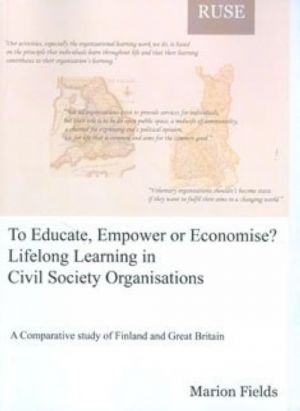Learning in civil society organisations has in recent years become a topic of considerable policy interest. It is increasingly seen as a vehicle in promoting the goals of lifelong learning policy, active citizenship in particular, but also other goals such as employability and self-fulfilment.
Learning in civil society organisations is explored in this study in a policy framework, comparing the educational attitudes and perceptions of Finnish and British organisations. The study also focuses on educational practices, and the perceptions of various actors with a stake in the matter over the educational, social and economic worth. Current policies are also discussed with regard to how they outline the role of civil society actors in a world in which the production of educational, welfare and other services has gained prominence in public discourses.
Learning in civil society organisations has in recent years become a topic of considerable policy interest. It is increasingly seen as a vehicle in promoting the goals of lifelong learning policy, active citizenship in particular, but also other goals such as employability and self-fulfilment.
Learning in civil society organisations is explored in this study in a policy framework, comparing the educational attitudes and perceptions of Finnish and British organisations. The study also focuses on educational practices, and the perceptions of various actors with a stake in the matter over the educational, social and economic worth. Current policies are also discussed with regard to how they outline the role of civil society actors in a world in which the production of educational, welfare and other services has gained prominence in public discourses.













